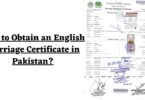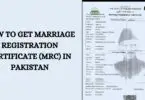There are multiple domestic and foreign determinants of the Foreign Policy of Pakistan. These determinants play a critical role in shaping the foreign policy of Pakistan. Moreover, these determinants equally influence the process of foreign policymaking in any state.
In this write-up, we will discuss some major domestic and foreign determinants of the foreign policy of Pakistan.
The Domestic Determinants of Foreign Policy Decisions
Domestic determinants such as military capability, economic development, and the type of government largely influence a state’s foreign policy choices.
During the process of foreign policy decision-making, Pakistan also considers the same domestic determinants.
The domestic determinants of the foreign policy of Pakistan are;
- Military Capabilities
- Economic Conditions
- Type of Government
Let’s discuss these domestic determinants one by one.
1. Military Capabilities
The realist asserts that the internal capabilities of a state influence foreign policymaking. The fact that the state’s preparation for war strongly influences their later use of force supported the assertion. Many states seek similar goals, but their ability to achieve the goals largely depends on their military capabilities.
For instance, Saddam Hussain made great efforts to build Iraq’s military muscle, and by 1990 he was able to build Iraq as the world’s fourth-largest military. Thus, invading Kuwait to seize its oil fields became a viable foreign policy option for the Iraqi government.
To counter Iraq’s belligerent move, the USA due to its military might choose to use military force against Iraq.
Similarly, Pakistan cannot choose its military option against India to liberate Kashmir, given India’s superior military.
Thus, states’ view about their own military capabilities and those of their adversaries, guide their decisions about war and peace.
2. Economic Conditions
The second most important determinant of foreign policymaking is the economic condition of the state.
In this regard, an economically developed state is more likely to play an active role in the global political economy.
Generally, the states that enjoy industrial capabilities and extensive involvement in global trade are also militarily powerful; as the economy is a prerequisite for military might.
Although economically advanced states are more active globally, it does not mean that their privileged circumstances would dictate aggressive policies.
Rich states are often satisfied states that have much to lose from revolutionary changes and global instability. Thus, they perceive the status quo in their best interests.
Economically advanced states often forge international economic policies to protect their envied position.
Similarly, poor economic conditions of the state also affect foreign policymaking. Some economically weak states respond to their situation by complying subserviently with the wishes of the rich states. While other states rebel defiantly. They sometimes succeed in resisting the efforts of great powers and powerful international organizations to control their behavior.
Although levels of economic development vary widely among states, this determinant alone does not determine foreign policies. Instead, leaders’ perception of opportunities and constraints that their states’ economic resources provide may have a larger influence on their foreign policy choices.
3. Type of Government
A third important determinant affecting states’ international behavior is their type of political system.
In a democratic system of government, public opinion, interest groups, and the mass media Influence the policy-making process. In a democracy, public opinion and preferences matter. Thus, differences in who is allowed to participate and how much they exercise their right to participate are critical determinants of foreign policy choices.
In contrast, authoritarian regimes make decisions more rapidly ensuring domestic compliance with their decisions. But, these governments are often less effective in framing an innovative foreign policy because of subordinates’ pervasive fear of raising questions.
Global Determinants of Foreign Policy
Global or external determinants that influence foreign policy include all activities or developments beyond a state’s border. It ultimately affects the foreign policy options and choices of state officials.
Factors such as military alliances and levels of international trade sometimes profoundly affect the choices of foreign policy decision-makers.
In the following, we will analyze the two major aspects of the international environment that affects international decision-making.
- Global distribution of Power
- The geostrategic position of the State
1. Global Distribution of Power
To describe the distribution of power among the members of the global system or states, scholars use the term ‘polarity’. Unipolar systems have one major or dominant power center, while bipolar contains two centers of power. Whereas, multipolar systems contain three or more such power centers.
Closely related to the distribution of power is the pattern of alignments among states.
Polarization refers to the degree to which states align themselves around the power state. For example, a highly polarized system is one in which small and medium-sized states form alliances with one of the two dominant powers.
Polarity and ‘alliance formation’ greatly influence the foreign policy-making of the states. For example, when the power is in the hands of a single state in a unipolar system, it can easily choose to use military force or intervene in the affairs of other states.
On contrary, in a system characterized by a distribution of shared power, rivals might obstruct the actions of one powerful state.
However, in tight military alliances or blocs, the small states will feel compelled to conform to the dictates of the alliance’s leader.
2. Geopolitical Factors | Geostrategic Position
The geostrategic location or position of a state vis-a-vis other states in the international system is one of the most important determinants of the foreign policy of a state because of the geostrategic advantages that the position conveys.
Consider the example of the USA, which was secure throughout most of its early history because vast oceans separated it from the potential threats in Europe and Asia. The advantage of having oceans as barriers to foreign intervention, combined with the absence of militarily powerful neighbors, permitted the USA to grow into an industrial giant and to safely practice an isolationist foreign policy for more than 150 years.
Also, consider the example of mountainous Switzerland whose easily defended topography has made neutrality a viable foreign policy option.
Similarly, maintaining autonomy from continental politics has been a major theme in the foreign policy of England. The physical detachment of England from Europe had long served as a buffer zone. It separated England from entanglement in major power disputes on the continent. Maintaining this protective shield has long been the priority for Great Britain. It also explains why England has been hesitant to accept full integration into the European Union.
Thus, the presence of natural frontiers profoundly guides policymakers’ choices.
You May Also Like To Read:







[…] a previously published article, we have discussed the determinants of any country’s foreign […]